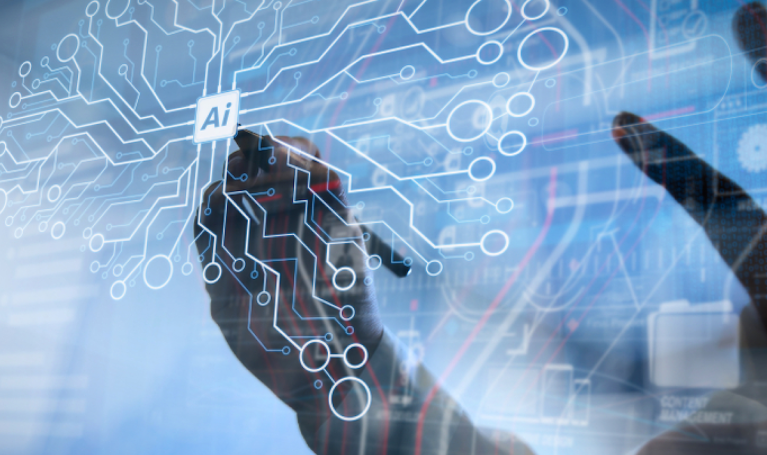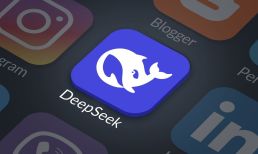This week in artificial intelligence (AI) news, OpenAI struck a news-sharing deal with News Corp and faced accusations from actress Scarlett Johansson over an allegedly replicated voice. Nvidia reported a staggering 262% revenue surge driven by the AI boom. Meanwhile, Amazon is preparing to launch a subscription-based version of its AI-powered assistant, Alexa, as the company recognizes the need for a paid model to support the integration of generative AI capabilities.
OpenAI, News Corp Strike News-Sharing Deal
Artificial intelligence company OpenAI and media giant News Corp announced a multi-year global partnership Wednesday (May 22). This will allow OpenAI’s ChatGPT AI chatbot to access and display content from over a dozen News Corp publications. “We believe an historic agreement will set new standards for veracity, for virtue and for value in the digital age,” said Robert Thomson, CEO of News Corp. Under the terms of the deal, OpenAI will gain access to current and archived content from News Corp’s publications spanning business, finance, politics and entertainment. News Corp journalists will also share their expertise with OpenAI to enhance the AI’s understanding of the news landscape.
While the partnership marks a significant step in integrating AI and journalism, some believe it goes beyond improving ChatGPT’s news and information capabilities. “Most people will see the OpenAI-News Corp deal and assume it’s about training data. It’s not. It’s about ChatGPT competing with Google Search,” said Nathaniel Whittemore, CEO of AI education company Superintelligent. Experts say the deal could significantly affect how people access and consume news.
Nvidia’s AI-Fueled Revenue Beats Expectations
Chipmaker Nvidia reported Wednesday that its revenue for the quarter ended April 28 soared 18% from the previous quarter and 262% from a year earlier to $26 billion, beating Wall Street expectations. “The computer industry is going through two simultaneous transitions — accelerated computing and generative AI,” said Nvidia founder and CEO Jensen Huang, attributing the company’s growth to partnerships with companies and countries transitioning to “AI factories” that will boost productivity across industries.
According to Reuters, Nvidia’s sales and profit exceeded analysts’ average estimate of $24.65 billion and the company’s own outlook of $24 billion for the quarter. Nvidia Executive Vice President and Chief Financial Officer Colette Kress described AI factories as “next-generation data centers” where “the data comes in and intelligence comes out.” Investors and analysts had been closely watching Nvidia’s earnings call as a bellwether for the booming AI industry.
Amazon’s Alexa May Soon Come With a Price Tag
Amazon is gearing up to charge a subscription fee for a tiered Alexa service, with the integration of generative AI driving the need for a paid model. “Before we would start charging customers for this — and I believe we will — it has to be remarkable,” said David Limp, former Amazon executive in charge of Alexa, adding that the AI-powered assistant must prove its utility to justify the cost. While no specific price has been determined, the company plans to engage with customers to assess the value they place on an enhanced Alexa experience.
Advertisement: Scroll to Continue
Recent reports suggest that the debut of Alexa Plus, the AI-powered subscription service, could happen by the end of the year. An Amazon spokesperson confirmed to PYMNTS that the company is developing generative AI capabilities for Alexa, which CEO Andy Jassy mentioned in his latest shareholder letter as part of “dozens” of potential applications, including an “even more intelligent and capable Alexa.” Currently, the only Alexa application under a subscription model is Alexa Together, designed for elderly care and family caregiver connectivity, but the company announced that it will discontinue support for the service after June 25.
Scarlett Johansson Accuses OpenAI of Replicating Her Voice
Actress Scarlett Johansson has stirred controversy by accusing OpenAI of replicating her voice for its ChatGPT system without her consent. The allegations surfaced after OpenAI removed a voice named “Sky” from its AI platform, which Johansson claimed bore an “eerily similar” resemblance to her voice, despite her prior refusal to lend her voice to the chatbot. “The likeness was particularly striking given my previous decision not to participate in the project,” Johansson stated in a recent press release.
In response to Johansson’s accusations, OpenAI CEO Sam Altman quickly denied that the “Sky” voice was an imitation, saying it belonged to a different professional actress and was cast before any engagement with Johansson. “The voice of Sky is not Scarlett Johansson’s, and it was never intended to resemble hers,” Altman stated in an email to Reuters. Altman expressed regret over the misunderstanding and announced the company’s decision to halt the use of Sky’s voice out of respect for Johansson, acknowledging the company’s failure to convey its intentions to the actress.




